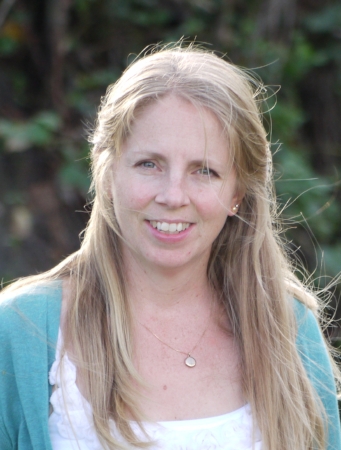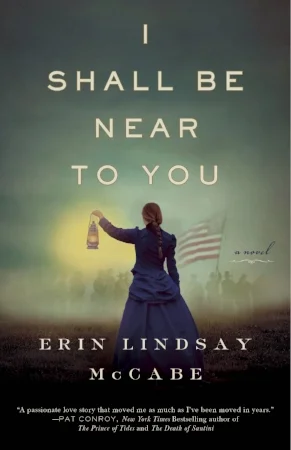Greer: If you could pick one woman from history to put in every high school history textbook, who would it be?
Karen: I’m going to cheat a little bit and name two, but they worked so closely together that it would be unfair to choose just one: Elizabeth Van Lew and Mary Bowser, who are two main characters in LIAR TEMPTRESS SOLDIER SPY. Elizabeth was a Richmond-born society matron who sympathized with the North, which was a very dangerous position for her to have while living in the Confederate capital. Mary was born a slave to the Van Lew family; when she was about four years old, Elizabeth freed her (along with all of the family slaves). She sent Mary abroad for schooling and developed a sort of mother-daughter relationship with her. With the onset of the Civil War, Elizabeth concocted a scheme: she would get Mary a job as a servant at the Confederate White House, waiting on Confederate president Jefferson Davis and his family. Bowser pretended she couldn’t read or write, but in reality she was highly educated and gifted with a photographic memory.
So when she was dusting Davis’s desk or cleaning up the children’s nursery, she was also sneaking a peek at military papers and eavesdropping on confidential conversations. She passed all of the information back to Elizabeth, who had organized a Union spy ring that stretched into neighboring states. The “Richmond Underground,” as it was called, was responsible for passing the most important intelligence of the war to Union General Ulysses S. Grant (in a letter to Elizabeth, he said so himself). The North would not have won the war without the efforts of Elizabeth Van Lew and Mary Bowser. They should be household names on the same level of Grant, Robert E. Lee or Stonewall Jackson, and I think it’s a travesty that they have mostly been lost to history.
Greer: It's really a spectacular story, and I totally agree with your choice(s). Generals aren't the only people who make things happen in wartime -- far from it. So, what's your next book about and when will we see it?
Karen: My next book is about the most successful bootlegger in American history (and his name was NOT Al Capone). He was wildly innovative, eccentric and brilliant, and made an estimated $40 million (in today’s money) in just two short years. He threw lavish parties and was reportedly Fitzgerald’s inspiration for Jay Gatsby. My other main character is a pioneering woman lawyer, who, at age 32, was appointed by Warren Harding at the Assistant Attorney General for the United States. She was in charge of all bootlegging cases in the country. Harding, whose administration was notoriously corrupt, figured that a young woman just five years out of law school with no prosecutorial experience would not impede their business with bootleggers. Well, of course she went in there and started kicking some ass. There’s a great narrative arc: a sordid love triangle, a murder, a sensational trial, all set against the backdrop of the Jazz Age. I’m having a lot of fun with it, and don’t want it to end! The tentative publishing date is January 2020, timed for the 100th anniversary of Prohibition. I envision quite a few events in speakeasies….
Greer: I like how you think. Last question: Do you consider yourself a historian?
Karen: Not in the traditional sense of the word, no. I don’t have a history degree and I am not an academic; I have no interest in writing, say, a feminist analysis of prostitution or the Civil War. I’m a selective historian; I find a story that fascinates me and then I exhaustively educate myself about that topic, those people, that place and time. I notice language in letters. I discover what items were selling at the corner store and for how much. I research the proper way to lace a corset—those sorts of details that bring long-dead tales and people to live. I like to say I’m in the business of time travel, and I aim to tell a good story that illuminates a forgotten slice of history. By the end of a book, I am always jealous of my characters, and wish I could have lived their lives. Writing about them is the next best thing.
Greer: Love it.
Karen: Your most recent (and excellent novel), GIRL IN DISGUISE, is based on the true story of Kate Warne, America’s first female private eye. I came across Kate Warne in my research for LIAR TEMPTRESS SOLDIER SPY and was fascinated by her, so I am glad you wrote this book. I’m curious about your research process. I don’t believe there is much information about Kate, and certainly not much primary source material. Did you find anything surprising that shed light on her character, or is she mostly a figment of your imagination? Did you rely on diaries and other primary source material to make the dialogue so authentic and true? What is your secret trick for turning an obscure historical figure into such a complex, three-dimensonal and relatable character?
Greer: As it happens, I didn't really know there was so little information on Kate in the historical record when I decided to write a book about her. Lucky for me I'm not a biographer. I would have really been up a creek. But as a historical novelist I decided to take the gaps in her story as invitations. We don't have any letters or diaries from her, so I had to come up with a voice for her, and I gave her the personality I thought she must have had in order to do the things she did: march into Allan Pinkerton's office in 1856 asking for a job as a detective; be so good at her job Pinkerton established a Bureau of Female Detectives and put her in charge; help talk Abraham Lincoln into changing his route to DC for his inauguration to avoid an assassination attempt in Baltimore. And that's just what we know she did. Imagine all the other things we don't know about!
Nearly everything in Kate's character uses that scarce information from the historical record as a jumping-off point. We know she was a good enough actress and mimic to pass as a native Alabaman with other Southerners -- how did that come about, I wondered? We know she was a widow, or at least Allan Pinkerton says she was a widow, so I added that to the list of things to explain. Bit by bit I built a character from what little information the record offered up, and wove together plausible -- and hopefully interesting -- ways to fill in the gaps. The result isn't necessarily the Kate Warne, but she's my Kate Warne, which is the freedom inherent in fiction. I just want to honor history and deliver the best possible experience for the reader, whatever that takes.




















